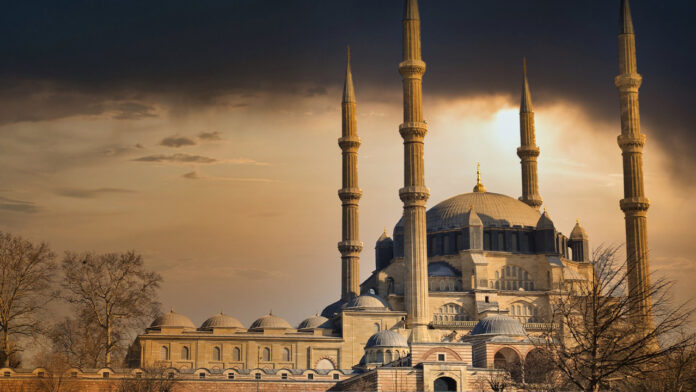Step into the pages of history as we explore the Ottoman Empire, a once-mighty realm that spanned three continents and left an indelible mark on the world. In this article, we unravel intriguing facts about the Ottomans, from their origins to the lasting impact of their cultural and imperial contributions. Join us on a journey through time as we delve into the rich tapestry of the Ottoman Empire.
The Rise of the Ottoman Empire: Foundations of Greatness
Osman I and the Ottoman Dynasty: The Ottoman Empire traces its roots to Osman I, the founder of the Ottoman Dynasty. Osman’s vision and military prowess laid the foundation for an empire that would endure for centuries.
Conquest of Constantinople: One of the pivotal moments in Ottoman history was the conquest of Constantinople in 1453 by Sultan Mehmed II. This event marked the end of the Byzantine Empire and the beginning of Ottoman dominance.
Ottoman Sultans: Visionary Leaders of an Empire
Suleiman the Magnificent: Often regarded as the greatest of the Ottoman Sultans, Suleiman I, or Suleiman the Magnificent, ruled during the Golden Age of the Ottoman Empire. His reign saw cultural flourishing, architectural achievements, and military triumphs.
Selim the Grim: Selim I, known as Selim the Grim, expanded the Ottoman Empire significantly during his reign. His conquests included the Mamluk Sultanate and the Safavid Empire, solidifying Ottoman control over vast territories.
Ottoman Architecture: Marvels of Grandeur and Innovation
Hagia Sophia: A Symbolic Transformation: The conversion of the Hagia Sophia into a mosque by Mehmed II stands as a testament to Ottoman architectural prowess. The iconic structure has witnessed multiple transformations, reflecting the empire’s cultural adaptability.
Topkapi Palace: Heart of Ottoman Rule: Topkapi Palace in Istanbul served as the primary residence of Ottoman Sultans for centuries. Its opulent design, intricate courtyards, and stunning views of the city make it a quintessential example of Ottoman architecture.
Ottoman Contributions to Culture and Society
Ottoman Literature and Poetry: The Ottomans made significant contributions to literature, producing timeless works in various genres. The Divan poetry of figures like Rumi and Yunus Emre continues to resonate with audiences today.
Ottoman Cuisine: Culinary Heritage: Ottoman cuisine, influenced by a rich blend of cultures, has left an enduring legacy. Dishes like kebabs, baklava, and Turkish delight are cherished worldwide, reflecting the empire’s culinary influence.
Ottoman Military: Conquests and Strategies
Janissaries: Elite Ottoman Soldiers: The Janissaries, an elite military corps, played a crucial role in Ottoman military campaigns. Renowned for their discipline and loyalty, they contributed to the empire’s success on the battlefield.
Siege of Vienna: The Siege of Vienna in 1683 marked a turning point in Ottoman military expansion. The defeat by a coalition of European forces halted the Ottoman advance into Central Europe.
Ottoman Decline and Legacy: An Empire’s Epilogue
Tanzimat Reforms: Modernization Attempts: In the 19th century, the Ottoman Empire embarked on the Tanzimat reforms, aiming to modernize administrative, legal, and educational systems. These efforts sought to address the challenges of a changing world.
End of the Ottoman Empire: World War I and Beyond: The Ottoman Empire met its end after World War I, with the signing of the Treaty of Sèvres. The establishment of the Republic of Turkey marked a new era, led by Mustafa Kemal Atatürk.
Ottoman Influence Today: Heritage and Remembrance
Ottoman Architecture in Modern Turkey: Ottoman architectural influence can still be seen in modern-day Turkey. Mosques, palaces, and other structures serve as reminders of the empire’s grandeur and enduring impact on Turkish identity.
Cultural and Artistic Heritage: The Ottoman Empire’s cultural and artistic contributions continue to shape Turkish identity. Traditional music, calligraphy, and decorative arts bear the imprint of Ottoman aesthetics.
Conclusion: Ottoman Legacy and the Echoes of History
In conclusion, the Ottoman Empire stands as a colossal force that shaped the course of history, leaving behind a legacy of cultural richness, military prowess, and architectural marvels. From the rise of Osman I to the decline and modernization attempts, the Ottomans’ story is one of grandeur and complexity. As we explore their contributions to literature, cuisine, and society, we recognize the enduring echoes of the Ottoman Empire in the heritage of modern Turkey. The Ottomans, with their imperial vision and cultural brilliance, have etched an indelible chapter in the annals of human civilization.

